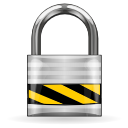Posted: December 15th, 2011
 Not only are there greater threats out there than ever before, but we’re increasingly putting more and more of our own personal and private information online, on social networking sites such as Facebook, often without even knowing who has access to that information. We’re also entering our personal information and credit card information into more sites than ever, as we turn more often to the internet to purchase even common items.
Not only are there greater threats out there than ever before, but we’re increasingly putting more and more of our own personal and private information online, on social networking sites such as Facebook, often without even knowing who has access to that information. We’re also entering our personal information and credit card information into more sites than ever, as we turn more often to the internet to purchase even common items.
Sites like Spokeo now collate data on just about every user on every social network they can,
and even augment that information with stuff like satellite images of your house, and give that information away to anyone willing to pay them $40 for it. You should truly only ever post something that is of no consequence to you if anyone else sees it. You now have to assume that anything you put online can and will be seen by anyone, so discretion is the key. Even posting seemingly innocent things like your general travel plans could leave your house open to theft, or your friends the victim of a common scam where they impersonate you and beg for money.
Recent statistics also show that as many as 25-30% of users are being affected by viruses and malware each year, issues which could be serious enough that they lead to a loss of data, or the theft of your banking information and personal identity. Keep yourself well protected while online, and always be aware of links you’re clicking, and sites you’re visiting.
The online realm is fraught with peril, but if you protect yourself adequately and always have an eye on your surroundings and a thought on your privacy, you should have no problems navigating it safely and securely.
Judy
Softarama team
Posted: May 3rd, 2011
 We connect to the internet through wi-fi connections at a higher rate than ever, yet despite many of us knowing the security risks of using these networks, we still aren’t taking all the precautions necessary to protect ourselves.
We connect to the internet through wi-fi connections at a higher rate than ever, yet despite many of us knowing the security risks of using these networks, we still aren’t taking all the precautions necessary to protect ourselves.
When it comes to using your own wi-fi network at home, you want to make sure of two things: that your data can not be intercepted by others, and that your network can not be accessed by others. The first step to take on both counts is to make sure your network is WPA2 compliant. WPA2 is the latest wi-fi security technology, and completely restricts access to your network, while also encrypting all data transmitted across it. It does require the use of compatible devices though, so only wi-fi certified products that are capable of being added to your setup should be used.
When accessing wi-fi hotspots, you’ll want to restrict your web use to the simplest of tasks, such as basic web viewing. Any function that requires you to access an account should be heavily considered before proceeding. If it’s a simple forum account, or even a free e-mail service, you may not need to be overly protective, but certainly anything related to banking or accessing other sensitive information should be avoided.
By taking these steps you’ll greatly increase your security and minimize your risks while using wi-fi networks both at home and abroad.
Dave
Softarama team
Posted: March 22nd, 2011
Online, there are plenty of simple things you can do to stop identity thieves in their tracks. Most of these are simple, common-sense steps.
When you select your passwords for websites that could give up your information, such as your bank, your school, or your email, choose something that nobody could guess. Pets’ names are notorious obvious, and far too easy for a potential thief to figure out. Choose something obscure, and don’t use the same password for every account.
Change you password frequently on highly sensitive accounts, such as your online bank account.
When you go online, your information is saved at almost every website you visit. This is why it’s a smart investment to use protective software. These software programs, such as Privacy Sentinel, prevent websites from saving and storing your information.
If you can, avoid typing in sensitive information while using computers at schools, libraries and coffee shops. It’s very easy for an identity thief to put keystroke-tracking software on these computers without anybody noticing. Once the person puts in their information, the thief has it on record, and can use it for themselves.
Consider creating a free email account that you use specifically for sensitive information. This way, if somebody happens to see you accessing your regular email in public, they won’t be able to find your financial information.
For more information on how to clean online traces click here.
In my next post, I’ll share some tips for staying safe from identity theft while offline.
Posted: March 21st, 2011
We all hear the words “identity theft” these days, in the news and online. What exactly does it mean? The simplest definition is a person stealing another person’s information…their Social Security number, their bank account information, their credit card number…and using that information to make purchases.
Identity theft is getting so much publicity lately because it’s on the rise. New technology has given thieves new ways to steal information. Many of these ways are so subtle and sneaky that you don’t realize you’ve been robbed until it’s too late. This means that by the time most people realize they’ve been robbed; the thieves have made their purchases and already stopped using the information. This makes them extremely hard to trace or to arrest.
For an example of how easy it is to steal somebody’s identity, consider how often you enter personal information online. If your wireless internet connection isn’t secured by a password or code, it’s frighteningly easy for thieves to access your connection and see everything you type.
This is one reason why using public computers, such as those in a coffee shop, library or school, can be so risky. A good practice is to never use sensitive information on a shared computer. It’s very easy for a thief to put a keystroke-tracking program onto a computer, without the knowledge of the business where the computer’s located. Keep your banking and other sensitive transactions to your home computer, using a secured connection.
How can you possibly protect yourself? In my next blog, I’ll give you some simple tips for avoiding identity theft.
Posted: November 28th, 2010
Internet users keep hearing about cookies all the time.
In case you’ve started drooling over your grandma’s cookies- this is just the post for you…
So, what are cookies?
For faster loading time the system and internet browsers store a lot of information so we won’t have to bother to retype it time and again. Cookies are temporary files which store all internet related information, i.e. websites visited, images viewed, data downloaded. All such information is cached on your hard drive. Next time you visit the same site, you do not have to repeatedly download the data.
The recently visited site URLs are stored in the address bar of the Internet Browser (usually Internet Explorer). Keywords typed on the search engines are also saved for our convenience. History stores all the recently opened documents and files. Windows Temporary folder saves temporary files. All this is for our convenience, but can prove to be harmful if the same information is passed on to someone else.
One should be more careful when multiple users share the same computer. The traces of activities can be tracked down more easily in such a scenario. This can be fatal if delicate and sensitive information becomes accessible.
The solution
Privacy Sentinel helps in erasing all the evidence of computer and Internet related activities. Internet history, the history of applications and documents used, the recent data accessed, URLs in the address toolbars, and deleted files in Recycle Bin are some very important traces that Privacy Sentinel permanently eliminates from the system. In that process you also free hard drive space.
Privacy Sentinel does a dual job of maintaining system and user privacy and freeing some space on the hard disk. In a few simple clicks, you can regularly delete privacy-exposing traces from the system and keep your online privacy secured.
Safe browsing!
Judy,
Softarama Team.
 Not only are there greater threats out there than ever before, but we’re increasingly putting more and more of our own personal and private information online, on social networking sites such as Facebook, often without even knowing who has access to that information. We’re also entering our personal information and credit card information into more sites than ever, as we turn more often to the internet to purchase even common items.
Not only are there greater threats out there than ever before, but we’re increasingly putting more and more of our own personal and private information online, on social networking sites such as Facebook, often without even knowing who has access to that information. We’re also entering our personal information and credit card information into more sites than ever, as we turn more often to the internet to purchase even common items.